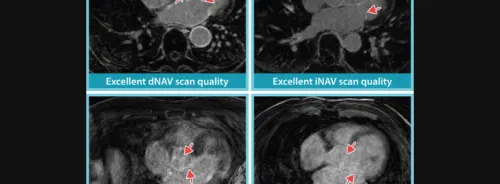In recent years, the U.S. healthcare system has faced significant challenges, including those brought on by the COVID-19 pandemic. Hospitals have grappled with financial difficulties, supply chain disruptions, staffing shortages, limitations on clinical services, and economic pressures like inflation. These challenges have affected both clinicians and operational leaders within hospitals, with about one-third of operational leaders experiencing high levels of burnout. Factors contributing to burnout and professional fulfilment among administrative leaders include their position, work hours, and sleep-related issues. The ability to prioritise self-care and personal well-being, as well as adopting a growth mindset, have been linked to higher professional fulfilment and lower burnout. A recent report evaluates the satisfaction of senior healthcare administrative leaders with work-life integration, social isolation, and the impact of work on personal relationships, comparing their experiences to those of workers in other fields through a national survey.
Understanding the Landscape of Senior Healthcare Operational Leaders
The 2021 American College of Healthcare Executives (ACHE) survey aimed to capture insights from senior healthcare operational leaders. Out of the 5,994 ACHE members invited to participate, 1,301 individuals responded, resulting in a response rate of 21.7%. After excluding 32 respondents who were no longer employed in healthcare delivery, 1,269 remained for analysis. Comparison of these participants with the overall ACHE membership showed slight differences in age distribution, with a higher proportion in the 50 to 59 age group among respondents. However, there were no significant variations in demographic characteristics between early and late respondents, indicating representativeness across response times. Participants were asked to provide basic demographic details and professional characteristics, such as position and average weekly work hours. Additionally, they responded to questions concerning the intersection of personal and professional life. This included assessing satisfaction with work-life integration (WLI) through agreement with statements regarding work schedules and personal/family life. Social isolation was evaluated using an item from the National Institutes of Health (NIH) Patient-Reported Outcomes Measurement Information System (PROMIS) scale. The impact of work on personal relationships (IWPR) was measured using a Stanford scale, examining various aspects like difficulty in nurturing existing relationships or feeling isolated from important people. Burnout and professional fulfilment were assessed using the Stanford Professional Fulfilment Index, allowing for a comprehensive understanding of participants' well-being in their professional roles. Furthermore, the educational background of healthcare administrators was explored, categorising respondents based on their highest degree attained, from master's degrees to doctoral and other clinical degrees. This detailed analysis provided valuable insights into the experiences and characteristics of senior healthcare operational leaders in the surveyed population.
Well-being and Work Dynamics Among Healthcare Administrators
Among the 1,269 participants, 1,217 (95.9%) responded to at least one IWPR question. The demographic breakdown showed that 47.0% were women, and 48.6% were over 50 years old. Positions included 22.2% CEOs, 17.6% other C-suite roles, 21.5% vice presidents or senior vice presidents, and 38.7% other managerial/administrative positions. Regarding satisfaction with WLI, 31.1% agreed their work schedule allowed enough personal/family time, while 9.3% strongly agreed. For feeling isolated, 9.1% often or always felt this way, while 31.8% rarely or never did. Responses to IWPR items indicated that conflicts in personal relationships were prevalent, with 57.6% indicating their job contributed to such conflicts. Conversely, fewer respondents (29.7%) found work made it harder to develop new meaningful personal relationships. The mean IWPR score was 4.39, with higher scores indicating more negative impact. Unfavourable IWPR scores increased with longer work hours, but no significant differences were observed by age, gender, or other demographic factors.
Comparing healthcare administrators to the general U.S. working population in 2020, administrators reported longer work hours (54.7 vs. 40.7 hours per week) and lower satisfaction with WLI (40.5% vs. 62.5%). They reported similar rates of feeling isolated but were more likely to feel detached from important people due to work (23.6% vs. 5.9%). Satisfaction with WLI, feeling isolated, and IWPR were independently associated with burnout, with WLI linked to lower odds and isolation/IWPR associated with higher odds. Similarly, satisfaction with WLI, feeling isolated, and IWPR were independently associated with professional fulfilment, with WLI linked to higher odds and isolation/IWPR associated with lower odds.
Balancing Act: understanding the mechanisms behind burnout
A notable discovery was that senior healthcare administrative leaders were less likely to report satisfaction with WLI compared to the general U.S. working population. Even after adjusting for various demographic factors, such as age, gender, education level, and relationship status, this disparity persisted. One significant contributing factor to this discrepancy was the substantially longer work hours of healthcare administrators, averaging 54.7 hours per week compared to 40.7 hours for workers in other fields. This finding underscores the intense demands placed on healthcare administrative leaders and the challenges they face in balancing their professional responsibilities with personal and family life.
Work hours emerged as a critical variable influencing the impact of work on personal relationships, with longer hours associated with a less favourable impact. Healthcare administrative leaders also reported feeling more isolated and detached from important people due to their job compared to the general population. These findings highlight the toll that work demands can take on personal relationships and social connectedness, which are crucial for overall well-being.
Moreover, the study revealed strong associations between WLI, social isolation, and personal relationship impact (IWPR) with burnout and professional fulfilment. As these dimensions worsened, burnout increased, and professional fulfilment decreased. This underscores the profound impact of work-life balance and social connectedness on the mental health and job satisfaction of healthcare administrative leaders.
Organisational Changes for Creating a Culture of Well-being
In response to these findings, organizations must prioritize strategies to support WLI and mitigate the negative impact of work on personal relationships among healthcare administrative leaders. This may involve implementing policies that promote flexible work arrangements, establishing clear boundaries between work and personal life, and fostering a supportive organizational culture that values employee well-being. Healthcare administrative leaders themselves can also take proactive steps to address these challenges by advocating for their own work-life balance and modelling healthy behaviours for their teams. By prioritizing self-care and promoting a culture of support within their organizations, healthcare leaders can create environments that facilitate personal and professional fulfilment for themselves and their colleagues.
Overall, this study underscores the importance of recognizing and addressing the unique challenges faced by healthcare administrative leaders, particularly in the context of work-life integration and social connectedness. By prioritizing these aspects, organizations can enhance the well-being and effectiveness of their administrative leaders, ultimately contributing to a healthier and more resilient healthcare workforce.
Source: Journal of Healthcare Management
Image Credit: iStock






